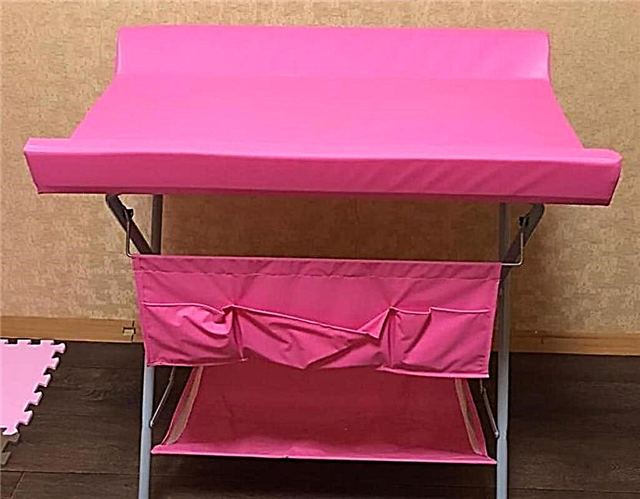
"Creon" is one of the popular enzyme preparations that are prescribed for digestive disorders for both adults and children. But, before using the medicine in childhood, it is worth learning more about the features of such a medicine, as well as how to properly give it to young patients.
Release form and composition
The drug is represented by intestinal-soluble capsules with a dense gelatinous shell. The main ingredient in the medication is called pancreatin. One package contains 20, 50 or 100 capsules, placed in a plastic bottle. They come in three dosages, as indicated in the name.
- "Creon 10000". Each capsule of such a drug contains 150 mg of pancreatin, which contains 10 thousand units of lipase. The amount of protease in this "Creon" is 600 units, and the dosage of amylase is 8 thousand units per capsule. Additionally, the drug includes macrogol, gelatin, cetyl alcohol and other substances. The capsules themselves have a transparent body and a brown cap. Inside there are tiny light brown balls (it is in these mini-spheres that the active substances are placed).
- "Creon 25000". These capsules have a transparent body, but their cap is orange-brown. They also contain beige-colored microspheres inside them. One such capsule contains 300 mg of pancreatin. As the name implies, lipase in such a medication is presented at a dose of 25 thousand units. As for other enzymes, the number of proteases is one thousand units per capsule, and amylases - 18 thousand units per capsule. The auxiliary ingredients in this medicine are practically the same as in Creon 10000, with the exception of one of the dyes (black iron oxide).
- "Creon 40,000". These gelatin capsules also contain beige microspheres, and the cap is brown. One capsule acts as a source of 400 mg of pancreatin. The patient receives from it 40 thousand units of lipase, and the dosage of proteases and amylases in such "Creon" is, respectively, 1600 and 25000 units. The list of inactive components completely coincides with the list of excipients of "Creon 10000", but they are presented in greater quantities.

Operating principle
After entering the stomach, the gelatinous shell of "Creon" dissolves, and the mini-spheres are mixed with food and pass into the lumen of the small intestine approximately 30 minutes after swallowing. In the intestine, the membrane of the microspheres dissolves and the enzymes present in them are released. They aid in the digestion of fats and protein molecules, as well as carbohydrates, which helps these nutrients to be absorbed completely and very quickly in the intestines.
In this way, "Creon" supports the pancreas, because the action of the capsules is able to partially compensate for the secretory function of this organ, if it is impaired.
Indications
The use of "Creon" is in demand if the patient was diagnosed with:
- chronic inflammatory process in the pancreas;
- cystic fibrosis;
- non-infectious diarrhea;
- difficulties in digesting food caused by surgery on the digestive organs;
- chronic stomach diseases;
- gallbladder disease;
- chronic bowel pathologies;
- liver disease.

The drug can also be taken in case of nutritional errors, for example, if the patient has unpleasant symptoms (flatulence, nausea, upset stools) due to irregular nutrition, eating too much or too fatty food. In addition, Creon is given before X-ray or ultrasound examination of the abdominal cavity, as well as to patients who have undergone surgery on the stomach or pancreas. Doctors also often include Creon in treatment regimens for atopic dermatitis, lactase deficiency, dysbiosis, rotavirus and other problems.
In addition, capsules are used when it is required to improve the absorption of food, for example, for weight gain after surgery or infection.

At what age is it allowed?
Treatment with "Creon" is possible from birth. Such an enzyme preparation is safe for babies, but newborns and infants must be prescribed by a pediatrician. However, at 1-2 years old, and older children (for example, at 7 years old), it should not be given without a doctor's prescription, since the regimen and doses are determined for each child separately.
Contraindications
Capsules are not used in such cases:
- if the child has a hypersensitivity to pancreatin or some inactive ingredient of the drug;
- if there is a suspicion of acute inflammation of the pancreas or it has already been diagnosed;
- if the child suffers from chronic pancreatitis, the symptoms of which have worsened.
As part of "Creon" there is no milk sugar, therefore, patients who have lactose intolerance, this medication is not contraindicated.

Side effects
Some children after taking "Creon" may experience constipation, nausea, bloating, bouts of vomiting and other digestive disorders. In this case, treatment is stopped and a doctor is consulted. The medicine can also provoke allergies, which also requires its cancellation. An overdose of the drug causes an increase in the amount of uric acid in both the blood and urine.
Instructions for use
Capsules should be given to the child with meals, and the dosage, as noted above, is selected individually by the doctor. It depends on the reason for the appointment of "Creon", and on the baby's nutrition, and on his age. Babies should be given the drug at the beginning of feeding. If it is difficult for a crumb to swallow a capsule, which is often the case when a medication is prescribed to a child under 3 years old, it is allowed to open the gelatinous shell and pour the microspheres into some non-hot liquid or liquid food with a sour taste, which the child will immediately swallow.
It is impossible to chew mini-spheres from the capsule, as this will damage their shell and reduce the effectiveness of "Creon", because enzymes will not enter the intestines, being activated in the stomach.
If the shell of the microspheres remains intact, then the gastric juice will not be able to dissolve it, and the medication will act exactly where it is required.
Terms of sale
You do not need a prescription from a doctor to buy a drug at a pharmacy. The price of a medicine is determined by its dosage and the number of capsules in the jar. For example, 20 capsules "Creon 10000" cost 250-300 rubles. For the same number of capsules, but with a higher dose ("Creon 25000"), you need to pay about 560-600 rubles, and the price of 50 capsules "Creon 40,000" is about 1500 rubles.
Storage conditions
It is recommended to keep "Creon" at home at room temperature, choosing for storage a dry place hidden from children. The shelf life of the drug, while the bottle has not yet been opened, is 2 years. After the first use of the capsules, you can store them in a tightly closed bottle for only 3 months.
If more time has passed since opening, the medicine should be discarded.

Reviews
Most of the reviews about Creon both from doctors (including the famous doctor Komarovsky) and from parents are positive. In them, the medication is praised for its effectiveness, the ability to treat children of any age and good tolerance. According to mothers, giving medicine to babies is easy, since the contents of the capsules are odorless and tasteless. Among the disadvantages of "Creon", many parents note its high cost, because of which they often turn to analogue drugs that are cheaper.
You will learn more about the "Creon" preparation for children in the following video.
"Creon Micro"
A drug under this name is produced by the same manufacturer and is also a pancreatin-based drug. Its main difference is the dosage form, which is presented not in capsules, but in granules. As in the encapsulated Creon, they have a beige color and an intestinal soluble shell. "Creon Micro" is sold in vials containing 20 g of granules. The bottle comes with a measuring spoon containing 100 mg of the medication, from which the patient will receive lipase at a dose of 5000 U, protease in the amount of 200 U, and amylase at a dose of 3600 U. This medicine is especially convenient to use in infants, since it is easier to dose this medication than Creon capsules.


Analogs
Instead of "Creon", other drugs can be used, the action of which is provided by pancreatin:
- "Mezim Forte";
- Panzinorm 10000;
- Penzital;
- Pangrol 10000;
- Hermital;
- Micrasim;
- Pancreatin Forte.
They, like Creon, are presented in solid form (capsules, dragees, tablets) and can be prescribed to children of any age, but they are given only as prescribed by a doctor, since the dosage is calculated individually.





